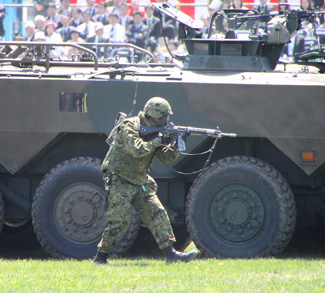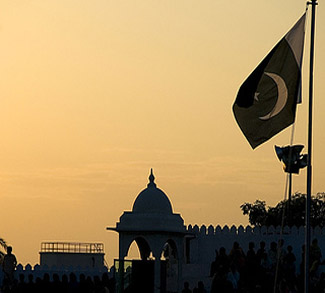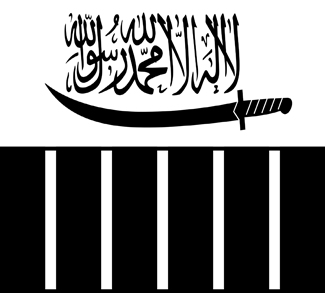Paris carnage shadowed the G-20 Antalya (Turkey) summit. Besides a press release summing up an economic and developmental agenda, the summit released a 9-point agenda on its fight against terrorism.
G-20 was not so specific and vociferous on its policy on terrorism in any of its previous summits. This shows that it takes terrorism seriously now even if the Mumbai carnage of 2008, which claimed over 200 innocent souls, did not scratch its humanistic sentiment.
The agenda merits very close study. Despite reassuring intentions, it demands clarification on a number of points. It has to be read along with the lengthy press statement of President Obama on terrorism, which was issued simultaneously. That shows how much hobbled is the thinking on terrorism. Contradictions are subtle.
The statement starts with condemnation of heinous attacks in Paris and Ankara, which “are not acceptable to G-20.” Are the attacks that happened prior to these two, including the 9/11 and 26/11, acceptable to G-20? Obviously not. All terrorist attacks are worthy of condemnation.
The summit speaks of the spread of terrorist organizations and the significant rise of terrorism globally. However, it does not shed any light on the reasons for spread of terrorist organizations. It does not make any mention of state-sponsored terrorist organizations. Without identifying regions/countries where terrorism has struck roots with the connivance of state agencies, including their armed forces, anti-terror resolutions lose their weight. G-20 members know the regions and countries since they are dealing with them.
Today the United States is fighting the same Taliban in whose shaping she played a crucial role.
The resolution “unequivocally condemns all acts, methods, and practices of terrorism, which cannot be justified under any circumstances, regardless of their motivation, in all their forms and manifestations, wherever and by whosoever committed.” Presuming that this is a firm commitment, the agenda says nothing about the “national liberation” slogan coined by terrorists in justification of their acts of terror. Terrorists legitimize their criminality by labeling it as struggle to liberate Islam from the stranglehold of big economic powers or “foreign occupational forces.” The resolution should have specifically stated which movement the G-20 considers a true national liberation movement, and which is outright terrorism. It should have highlighted the dividing line.
We may ask whether an armed movement is a genuine ‘national liberation movement’ when it begins its mission with ethnic cleansing of minorities. Terrorists usually project themselves as activists of national liberation movements.
This contradiction spills over to the UN Charter also, which allows external ‘moral, political and diplomatic’ support to a so-called “national liberation movement.” The US Constitution allows US intervention in regions of conflict to support national liberation movements. Clarification of this enactment becomes unavoidable in the light of the resolve of the G-20. The focus is on “national liberation movement.”
The United States in Iraq and Afghanistan, and Pakistan in Kashmir have taken shelter behind this provision of the UN Charter. Incidentally, as we say one man’s terrorist is another man’s hero, one country’s overt and covert intervention in another country is ‘humanistic support’ while similar action by another country is ‘intervention or illegal occupation.’
As far as financing channels for the terrorists are concerned, we know that terrorists raise trusts, charity organizations, NGOs, and other institutions as cover for receiving and disbursing funds. They seldom use banks channels. Many of these organizations have come up in G-20 member states. President Putin of Russia said that he knew about 40 organizations that are functioning in G-20 member states that play conspicuous roles in funding terrorism globally.
Even when a government in terrorist-affected country points out the involvement of specific international organizations in clandestine money laundering, the concerned countries, instead of investigating and checking the irregularity, try to shield or even justify it. That is a form of state-sponsored terrorism. The resolution should have made it clear that such institutions and agencies will be working against the law and against the interests of the mother country. If the country takes no action to curb their clandestine financial activities, international community should be empowered to deal with it effectively.
The resolution states that, “The fight against terrorism is a major priority for all of our countries…..” This sounds hollow when we look in retrospect. The most powerful and daring act of promoting terrorism was, first, the Soviet incursion into Afghanistan in 1979, and second, joint American and Pakistani response to it. This event laid the foundation of worst type of terrorism ever known to humankind.
American success in defeating the Soviets through a proxy war in Afghanistan became prelude to terror-proxying on the international plane. Not only that, its most devastating fallout was that of igniting the flames of Islamic religious extremism in the entire region. Afghanistan, with its shining history of secularism, was pushed into the vortex of the worst known sectarianism in the form of Taliban, thanks to General Babar of Pakistan, who had the blessings of Benazir Bhutto the then prime minister of Pakistan.
What an irony. Today the United States is fighting the same Taliban in whose shaping she played a crucial role. Today the U.S. is calling them terrorists and fundamentalists while they were her heroes and super cops when they were awash with Kalashnikovs.
Finally, the anti-terror resolution of G-20 states that, “continued and recent terrorist attacks all across the world have shown once again the need for increased international cooperation and solidarity in the fight against terrorism.” Did the world community cooperate with India when two decades ago India placed before it the looming threat to international peace in the wake of rising crescendo of religion-based terrorism in its part of the globe? Did they cooperate with India when external terrorists planned Mumbai carnage? Are they cooperating with India in asking the sponsors of Mumbai terrorism to bring the culprit to book? The summit calls for increased international cooperation only when terror has struck so fiercely in France.
What validity such a flamboyant statement can have when we know the U.S. has been selling sophisticated weapons and war material to such countries as are characterized by their own experts as the breeding grounds of international terrorism. Did not Pakistan’s former military ruler publicly acknowledge raising, abetting and sponsoring terror organizations on its soil to realize political goals? Has not the US categorized a number of organizations in such countries as “terrorist organizations” and imposed ban on them? The organizations were banned obviously after ascertaining their connections with benefactors, including those in the army. Was not Osama bin Laden found in a country that denied his presence on its soil until last moment?
In the final analysis, we hope that G-20 countries are serious in issuing the anti-terrorist statement in Turkey. It should not have minced words and adopted ambiguous polemics in addressing a crucial issue faced by the democratic and free countries around the world. It should have identified the countries that are irrefutably harboring terrorist organizations on their soil, providing them with all support under the rubric of “national liberation movements” and, in addition, projecting themselves as victims of terrorism.
The G-20 should have not only identified such countries but also notified them for imposition of UN sanctions. This would have convinced the world that G-20 is serious in combating terrorism. That would have sounded the death-knell to global terrorism.
The opinions, beliefs, and viewpoints expressed by the authors are theirs alone and don’t reflect any official position of Geopoliticalmonitor.com.




